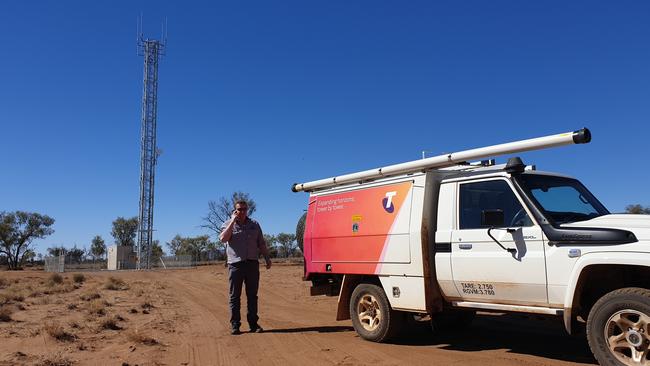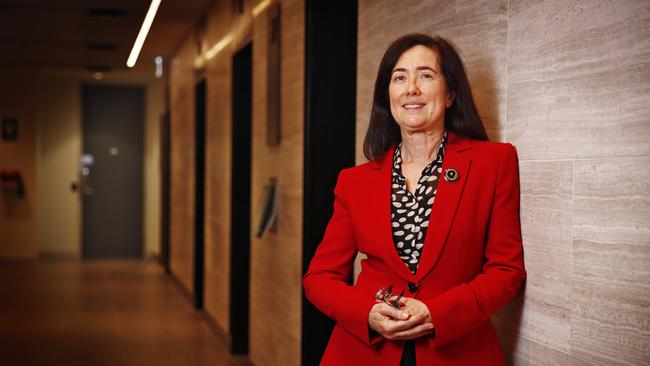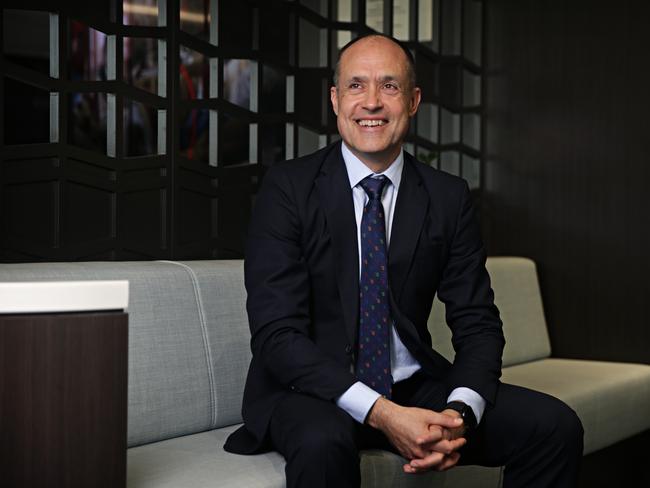What next for TPG and Telstra after $1.8bn deal block?
The nation’s telco giants should brace for a major regulatory overhaul and a long court battle following ACCC’s ruling.

The ACCC’s contentious decision to block a high-stakes $1.8bn network tie-up between Telstra and TPG will have long-lasting implications for the nation’s telecommunications sector, including a regulatory overhaul, analysts say.
The comments come after the competition watchdog published its full determination on Thursday.
TPG and Telstra both intend to file appeals after the ACCC announced on Wednesday it would block a proposal by the companies to consolidate their regional mobile networks in a 10-year, $1.8bn agreement, which the regulator found would ultimately reduce competition. In its full determination, the ACCC noted that the proposed transaction, affecting some 17 per cent of Australia’s population, was likely to limit TPG’s ability and incentives to compete strongly with Telstra.

“In particular, the ACCC considers that TPG has limited ability and incentive to invest in network infrastructure in the regional coverage zone, and to differentiate its product offering from that of Telstra,” the regulator said.
It said that the mooted deal would entrench Telstra’s market power by giving it a unique opportunity to improve its spectrum advantage over Optus, and probably result in a cost disadvantage for Optus.
“These (competition) effects are particularly concerning because mobile markets are characterised by high barriers to entry and expansion,” the ACCC commissioners said in their determination.
“As a consequence, anything that alters the structure of the market today can be hard to unwind via future entry or expansion by mobile network operators.
“The proposed transaction is likely to create enduring changes in the relevant markets.”
Independent telecommunications industry analyst Paul Budde said Telstra “played it the wrong way” in terms of how it handled the process, and that it was “very obvious from the beginning” the proposed merger would be blocked by the regulator because it was at odds with 30 years’ worth of telecommunications regulatory policy designed to promote infrastructure competition.

He said the blocked merger would ultimately lead to an overhaul of Australian telecoms regulations.
“A few years ago, they started to separate their business in order to generate more revenue from their infrastructure, which I think was a good move,” Mr Budde said of Telstra.
“However, they should have come up with a strategy that would provide for an open wholesale arrangement, which would be available for whoever wants to use that infrastructure on a commercial basis.
“This would have made any projects such as the Telstra-TPG merger less anti-competitive and such an approach would have been a much better starting point than an exclusive arrangement with TPG.”
A review of Australia’s telecommunications regulations was now likely, Mr Budde said.
“I am certain that as a result of the Telstra-TPG action, the industry and the ACCC will have to sit down and work out a new regulatory system that takes the reality into account that the future of telecoms competition will be played out on the services side of the market and less so on the infrastructure side,” he said.
“Based on such a new regime, the industry could end up with a better foundation on which to develop projects such as the Telstra-TPG merger.”
TPG and Telstra have until January 11 to prepare appeals to the competition tribunal.
Analysts from Barrenjoey said that the ACCC did not have a good track record against the tribunal, noting that the tribunal granted merger authorisation to Tabcorp and Tatts in 2017, Sea Swift and Toll in 2016, and AGL and MacGen in 2014 – despite opposition from the watchdog.
The ACCC has also lost a number of contested merger cases in the Federal Court, which is where a TPG-Telstra appeal may eventually go.

In 2020 Federal Court Judge John Middleton ruled that the $15bn merger of TPG and Vodafone would improve competition on most fronts, which was a dramatically different finding to that of the ACCC.
The merger then went through after the ACCC concluded it did not have grounds for an appeal.
“Despite this outcome, we will continue to oppose mergers that we believe will substantially lessen competition, because it’s our job to protect competition to the benefit of Australian consumers,” then-ACCC chair Rod Sims said at the time.
Mobile pricing could rise despite the ACCC’s decision to block the TPG-Telstra network sharing agreement, the Barrenjoey analysts said.
“The ACCC states that TPG will have an increased incentive to lift prices immediately following completion of (the network sharing agreement), but that this may be unlikely in a TPG ‘targeted build’ counterfactual … TPG mobile pricing increases are likely irrespective of the outcome,” they wrote.
They said the deal was ‘‘relatively immaterial’’ for Telstra but its rejection was likely to cost TPG benefits of between $100m and $200m.
The competition watchdog on Wednesday ruled that the agreement would “entrench Telstra’s market position, cement its coverage advantage over Optus and TPG, and reduce incentives for Telstra to make investments in its network compared to the future without the proposed transaction”.
It would immediately “alter TPG’s future ability and incentive to invest in mobile network infrastructure, particularly in the regional coverage zone compared to the TPG-targeted build counterfactual”.
“This is because, if the proposed transaction proceeds, TPG will become reliant on access to Telstra’s network in regional areas in the longer term and will discontinue infrastructure investment in the regional coverage zone.”
Meanwhile, Optus “will have an incentive to undertake at least some investment in its network to prevent customer churn and retain existing market share in the future with or without the proposed transaction”.
“However, the ACCC does accept that Optus’ future investment incentives are likely to be lower in the future with the proposed transaction.”
Morningstar analyst Brian Han said that the ACCC’s decision was unexpected.

“We are surprised by the rejection of TPG Telecom’s proposed regional mobile network-sharing deal with Telstra, given its ostensibly pro-competitive nature,” Mr Han said.
“It would have made TPG a serious third player in regional markets where its mobile revenue share is less than 10 per cent, not to mention being able to compete on a more equal footing with Telstra and Optus for metropolitan mobile customers and enterprises who value national coverage.
“The competition regulator’s decision was in the face of tremendous support for the deal during the consultation process.
“This shows there may still be remnant (friction) between the ACCC and TPG from the unpleasant Vodafone merger process in 2019 to 2020 – something all the concessions made by narrow-moat-rated TPG and Telstra were unable to overcome.”



To join the conversation, please log in. Don't have an account? Register
Join the conversation, you are commenting as Logout